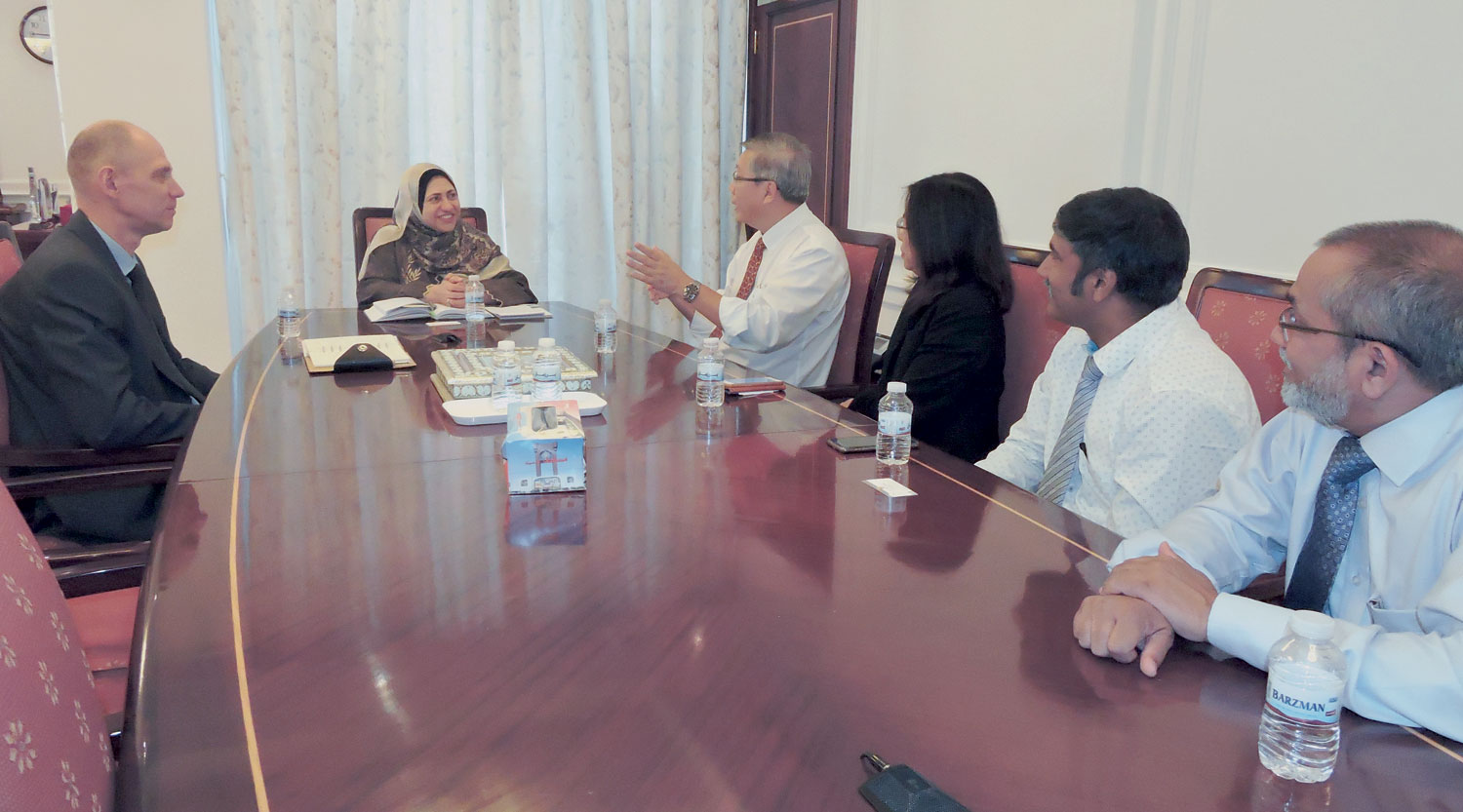

MUSCAT: A delegation from Temasek Polytechnic, Singapore, visited Sultan Qaboos University (SQU) on October 30. Temasek Polytechnic (TP) is a leading academic centre in training students for the growing aquaculture, veterinary and biomedical industries. The delegation included Dr Lee Wee, the Director of the School of Applied Science, Dr Diana Chan, the head of the Centre of Aquaculture and Veterinary Science, Dr Padmanabhan Saravanan, the head of the Centre of Innovation for Complementary Health Products, and Dr Shabbir Moochhala, the head of the Centre for Molecular Diagnostic.
Earlier in 2017, a letter of understanding was signed between SQU and Temasek Polytechnic. During the visit, the scientists from TP had met Deputy Vice Chancellor of Postgraduate Studies and Research, Dr Rahma al Mahrooqi, and the director of the Centre of Excellence in Marine Biotechnology (CEMB), Dr Sergey Dobretsov, as well as attended the 2nd GCC Marine Biotechnology Conference.
The conference was organised by CEMB, SQU and held in Al Faham Stage from October 31 to November 1. The main aim of the conference was to provide a stage for marine biotechnology, aquaculture and fisheries scientists from the region and other countries in order to exchange ideas and build up new
and strengthen the existing collaborations.
During the visit the questions of how to intensify the marine biotechnology projects between two institutions were discussed. Possibilities of joint training and supervision of postgraduate students and exchange of researchers between two academic institutions were identified. Such collaboration would open doors for new multidisciplinary research, as well as build up new and strengthen existing cooperation. Both institutions are highly interested in development of sustainable aquaculture.
Aquaculture is not farming of fish, invertebrates, algae, and plants anymore but became a food production industry. It can be used not only to produce fish and nutrients, but also pharmaceuticals, nutraceuticals and water treatment. Both institutions agreed to look for perspectives of co-funding, when joint projects can be supported by SQU and TP.
Oman Observer is now on the WhatsApp channel. Click here



